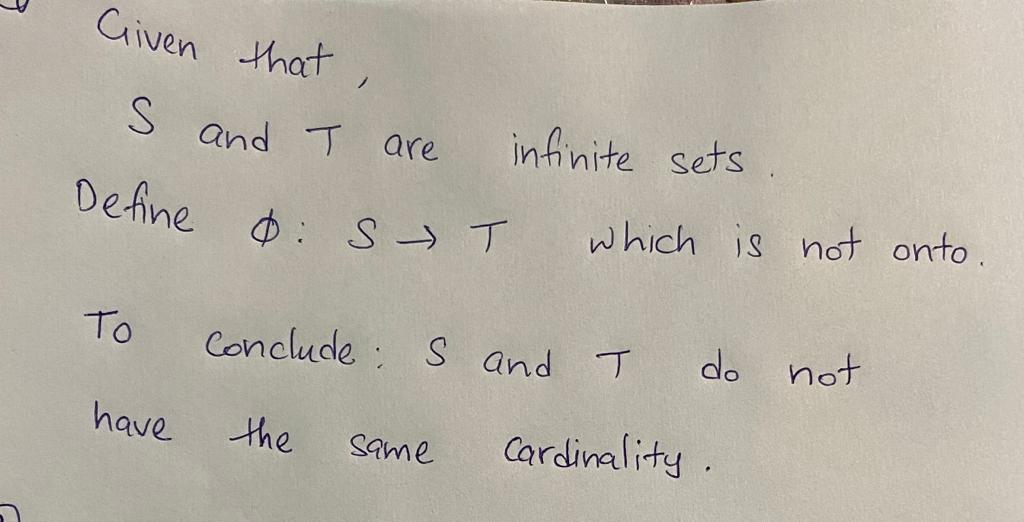Suppose S and T are infinite sets and φ: S→T is a function that is not onto. May we conclude that S and T do not have the same cardinality? Prove your answer!
Suppose S and T are infinite sets and φ: S→T is a function that is not onto. May we conclude that S and T do not have the same cardinality? Prove your answer!
Elements Of Modern Algebra
8th Edition
ISBN:9781285463230
Author:Gilbert, Linda, Jimmie
Publisher:Gilbert, Linda, Jimmie
Chapter1: Fundamentals
Section1.7: Relations
Problem 20E: Give an example of a relation R on a nonempty set A that is symmetric and transitive, but not...
Related questions
Question
Suppose S and T are infinite sets and φ: S→T is a function that is not onto. May we conclude that S and T do not have the same cardinality? Prove your answer!
Expert Solution
Step 1

Trending now
This is a popular solution!
Step by step
Solved in 2 steps with 2 images

Knowledge Booster
Learn more about
Need a deep-dive on the concept behind this application? Look no further. Learn more about this topic, advanced-math and related others by exploring similar questions and additional content below.Recommended textbooks for you

Elements Of Modern Algebra
Algebra
ISBN:
9781285463230
Author:
Gilbert, Linda, Jimmie
Publisher:
Cengage Learning,

Linear Algebra: A Modern Introduction
Algebra
ISBN:
9781285463247
Author:
David Poole
Publisher:
Cengage Learning

Elements Of Modern Algebra
Algebra
ISBN:
9781285463230
Author:
Gilbert, Linda, Jimmie
Publisher:
Cengage Learning,

Linear Algebra: A Modern Introduction
Algebra
ISBN:
9781285463247
Author:
David Poole
Publisher:
Cengage Learning